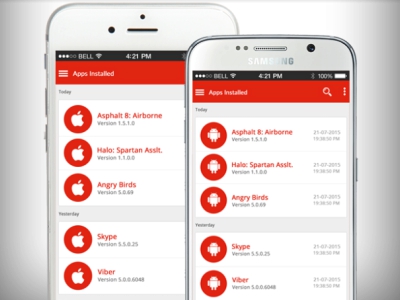Customer trust is critical to a successful business, but cyber hackers continue to find new ways of damaging that trust. Employees with poorly protected mobile devices can compromise their company’s data and even company apps. Mobile monitoring (“spyware”) is one way to track employee usage and prevent security breaches, so it’s no surprise that mobile spyware apps are becoming popular with companies worldwide.
Even mobile banking apps are not secure
Mobile banking and payment apps are also increasingly popular with businesses that need an easy way for their clients or customers to make payments. According to a study by AlixPartners, more and more people are adopting mobile banking to make business dealings swifter and almost instantaneous. About 28% of U.S. banking customers in the study said they will use mobile banking regardless of fees, and 21% said reliable mobile banking was more important than branch locations.
However, mobile banking is also the latest hunting ground for cyber criminals. According to another study by EBuyer.com, almost 97% of the 100 top retail and financial apps have been hacked. Most apps fail the basic security checks, which compromises users.
To make matters worse, employees sometimes fail to comply with company policies regarding the use of apps for official procedures. Reports show that almost 44% of the mobile banking app users are millennials between the ages of 18-29, and studies have shown that this age group is more likely to share information and less likely to use security measures. Though of course, employees in any age group can pose risks if they aren’t properly trained to take proper security measures.
Using mobile spyware in your security arsenal
Although most business managers know the importance of security, many of them don’t understand how to prevent mobile security attacks in our new age of mobile phone dependency.
 One way to help prevent sensitive company information from being compromised is to install a mobile monitoring app on employee phones and tablets. Spyware apps allow authorized IT admins to remotely monitor various activities on those devices so that they can prevent cyber threats before they can happen.
One way to help prevent sensitive company information from being compromised is to install a mobile monitoring app on employee phones and tablets. Spyware apps allow authorized IT admins to remotely monitor various activities on those devices so that they can prevent cyber threats before they can happen.
If business owners and managers know that their employees might resort to using their browser for online banking despite strict instructions to refrain from it, they can use a spyware app to screen the browser’s history and check bookmarked places. One such spyware app, called XnSpy, can also show admins how frequently an employee has visited specific sites and provide time stamps to tell exactly when those sites were used.
XnSpy and most other spyware apps also allow admins to remotely block any apps installed on employee devices. After an app is blocked, the employee will have to seek permission to use it. In this way, managers can mitigate and control the risk of a cyber-attack.
Most monitoring apps also allow users to screen employee text messages, emails, and chats–including transactions and communications related to company payments or other banking activities. Admins can use this feature in any mobile spyware app to make sure that team members don’t share sensitive details through unsecured means.
A final mobile security checklist
To protect your business against mobile security threats, consider at least these three things:
1. Device-level risk detection – Evaluate all device-level forms of cyber threats that your team members might face while using their cell phones, and install a spyware app as needed.
2. Account compromise – Educate team members about how to make sure there is no information on the cell phone that can compromise a company bank account or the bank account of customers.
3. Application-level protection – Make sure that team members don’t install any app that can increase the risk of hacking. Spyware and app wrapping services can help.
.





